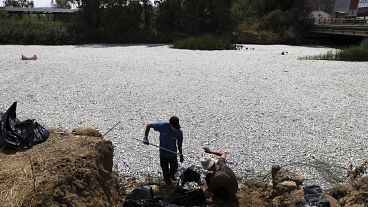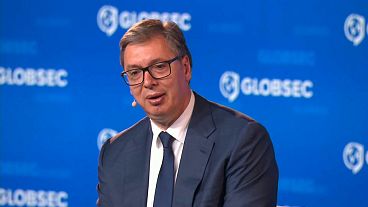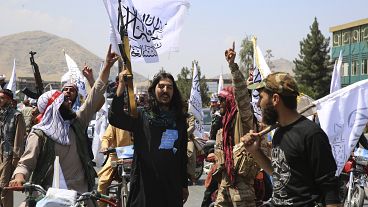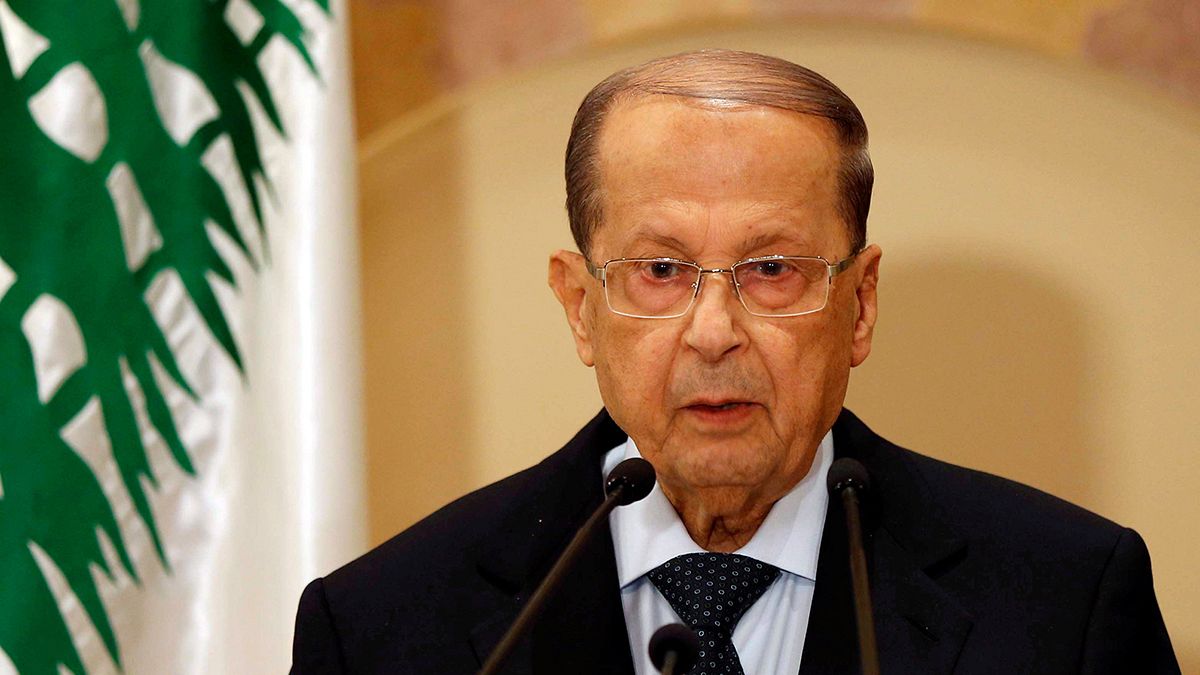Michel Aoun won a vote in parliament after more than two years of political deadlock
Ex-army commander Michel Aoun has been sworn in as the new president of Lebanon.
The 81-year-old won a vote in parliament after a long period of political deadlock in the country.
The post of president had been vacant for 29 months.
Reports say a deal is expected to see the Sunni Muslim leader Saad al-Hariri named as prime minister.
Lebanon has a sectarian power-sharing system and the post of president is set aside for a Maronite Christian.
Results announced on national television say Aoun won 83 votes among MPs, well above the majority needed.
In his victory speech Aoun vowed to fight terrorism “preemptively” and stop regional conflicts engulfing Lebanon.
Michel Aoun, a polarizing Christian politician and ally to Hezbollah, was chosen president of Lebanon https://t.co/eIxWGzKqVkpic.twitter.com/cZWaqK76cs
— The New York Times (@nytimes) October 31, 2016
Hariri reverses political slide by backing Aoun presidency in #Lebanonhttps://t.co/f5RNyOxHMppic.twitter.com/k1UR1q8e1x
— Al-Monitor (@AlMonitor) October 30, 2016
Michel Aoun elected as president of Lebanon https://t.co/qs0uqBWf8R
— The Guardian (@guardian) October 31, 2016
#UPDATE Lebanon's Aoun elected president, ending 29-month power vacuum https://t.co/XjBVVUg8XI
— AFP news agency (@AFP) October 31, 2016
Lebanon elects Hezbollah ally Michel Aoun as president after more than two-year vacancy https://t.co/TbxpRjMYH8pic.twitter.com/3ionTu0Rr9
— Haaretz.com (@haaretzcom) October 31, 2016
Who is Michel Aoun?
Here are some facts from the Reuters news agency about Lebanon’s new head of state, an ally of the powerful Iran-backed Shi’ite Muslim group Hezbollah:
- Aoun was prime minister of one of two rival Lebanese governments at the end of the 1975-90 civil war, appointed by outgoing President Amin Gemayel in 1988. He is remembered for fighting two ruinous wars in that period, one against Syrian forces in Lebanon, and another against a powerful Christian militia, the Lebanese Forces.
- The Syrian army drove Aoun from the presidential palace in 1990. He headed to the French Embassy in an armoured vehicle before going into exile in France. Aoun was a fierce opponent of the 1989 peace deal, the Taif Agreement, that ended the war. The accord reduced the political powers of Lebanon’s once dominant Maronite Christians, including the authority of the presidency, which was reserved for a Maronite. It increased the powers of the Sunni Muslim prime minister.
- From exile, Aoun lobbied against Syrian domination of Lebanon as Damascus kept troops stationed throughout the country. The head of Syrian intelligence in Lebanon was viewed as the country’s de facto ruler. Aoun supported Western moves to end Syria’s dominance, including the 2003 U.S. Syria Accountability Act, and U.N. Security Council Resolution 1559 passed in 2004, which called for free and fair presidential elections, the withdrawal of foreign forces, and the disarmament of all militias in Lebanon.
- Aoun returned to Lebanon after Syrian armed forces withdrew in 2005 following the assassination of former Prime Minister Rafik al-Hariri. Addressing supporters in Beirut’s Martyrs’ Square, Aoun declared Lebanon free and independent. But he did not join the “March 14” coalition that grouped other opponents of Syria’s role in Lebanon, many of whom were his adversaries from the civil war.
- In February 2006, Aoun appeared alongside Hezbollah leader Sayyed Hassan Nasrallah at a Beirut church to declare an alliance between his Free Patriotic Movement (FPM) and the Shi’ite movement. The alliance has continued to this day. Aoun supported Hezbollah in its war with Israel the following summer. His party then mobilised with Hezbollah in an attempt to bring down Prime Minister Fouad Siniora’s government, which was backed by the West and Saudi Arabia. Hezbollah maintained its support for Aoun’s candidacy, even after Hariri nominated another of its allies, Suleiman Franjieh, for the post a year ago.
- Aoun’s election will mark the first time one of Lebanon’s main Maronite politicians has been elected to the presidency since the end of the civil war. Michel Suleiman, his predecessor, was a compromise candidate who came to office in 2008 as a result of a regional deal. The two presidents before Suleiman were installed by Syria. The FPM is the biggest Christian party in the Lebanese parliament.












